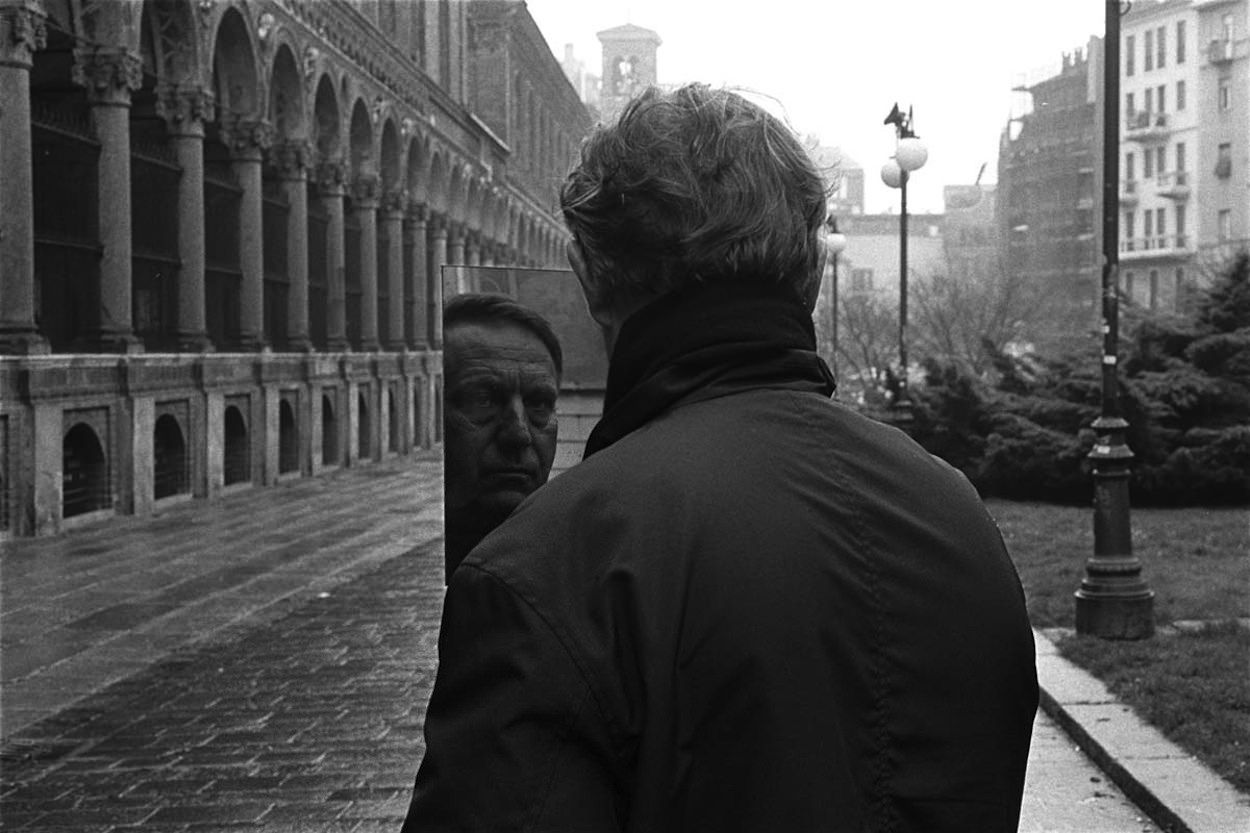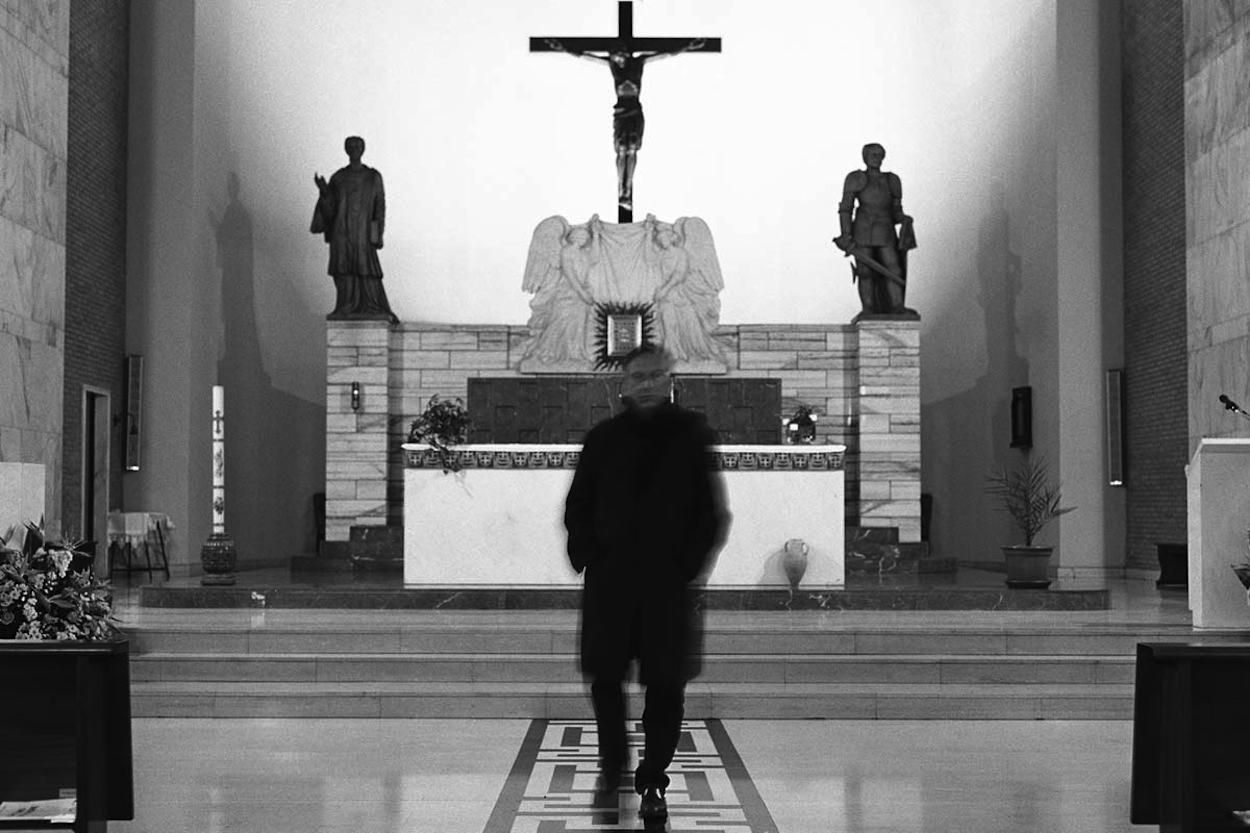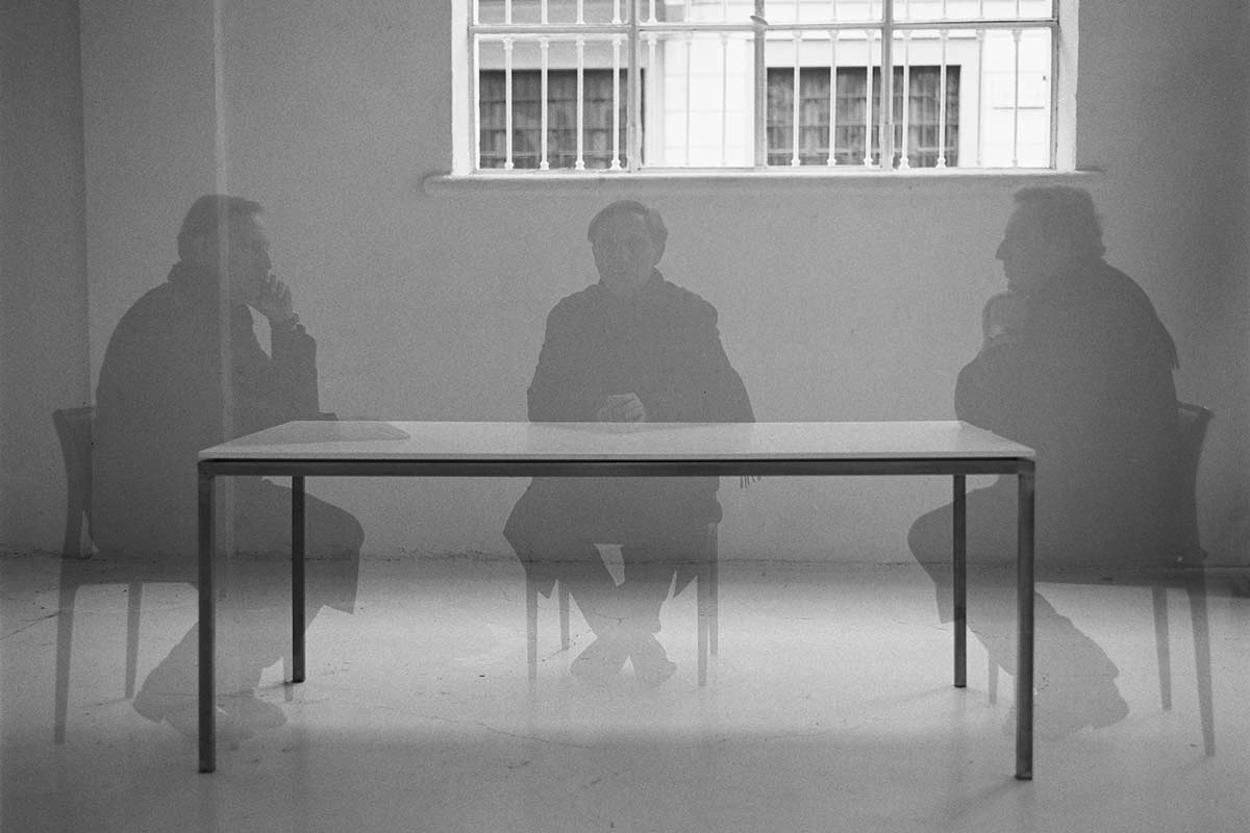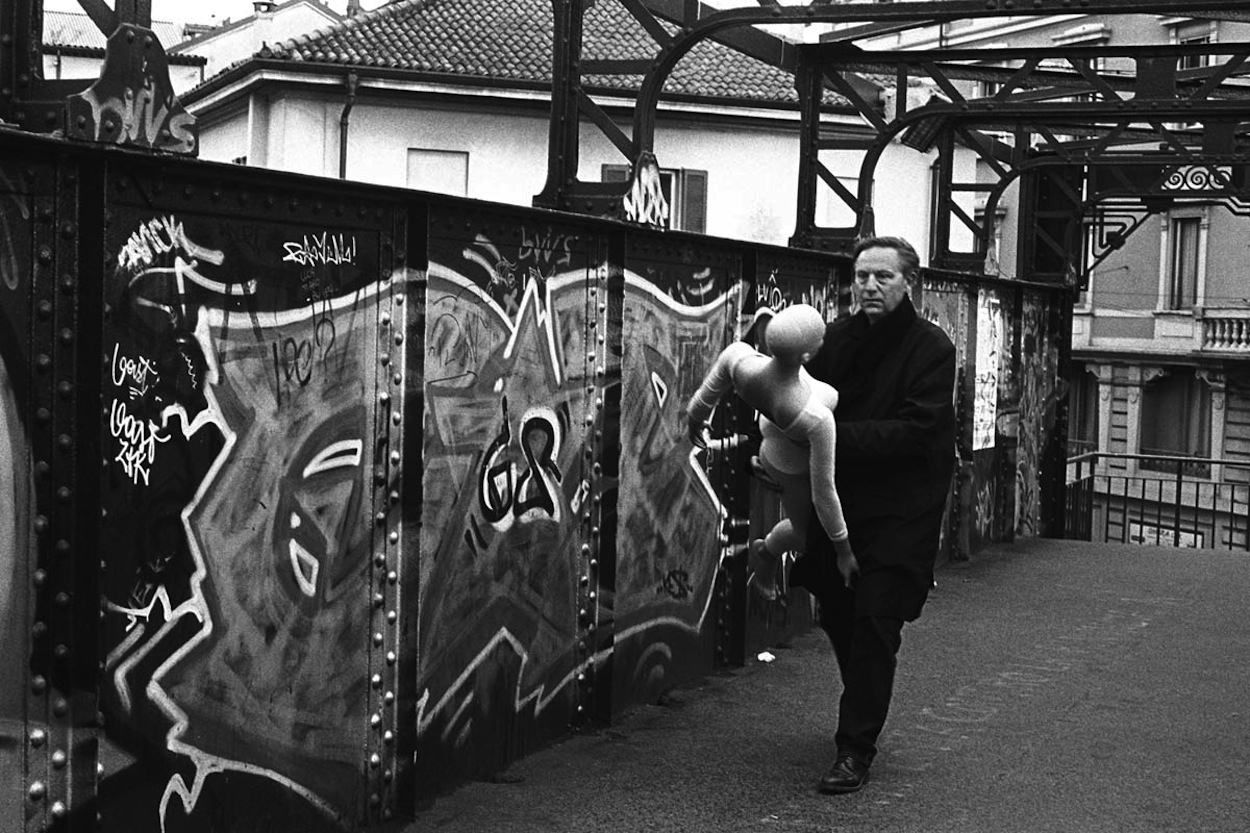Decalog
Start of work: 2000
"Decalog. The ten Commandments have taught us ever since we were tiny children. Pignatelli's storytelling is an attempt to answer the fundamental questions so many of us pose ourselves, in relation to these rules."
Sometimes we recall them in a confused way. Religious belief itself is unimportant.
The Commandments provide the rules; for respect toward others, for harmonious co-existence in wider society, and for profound relations with others.
But what changes have these rules been subjected to in the modern world?
In appearance none. They are accepted, immutable.
In fact it is not so, even if the changes which our obedience has undergone are almost imperceptible. In his visual storytelling Francesco Pignatelli reflects upon modern society and how this has imposed variations on these fundamental rules, focusing upon one city in particular, Milan, as a symbol of metropolitan life.
The initial idea was born of Decalog, the monumental cinematic work by the celebrated director Krzysztof Kieslowski. The inspiration came from the screenwriter Krzysztof Piesiewicz, who also questioned the present meaning of the Commandments, through an observation of a gothic painting.
After more than a year 's work the series of ten, surprisingly innovative, feature-lenght films were completed at the beginning of 1989. The protagonist of Pignatelli's work is the very same Piesiewicz. Invited to Milan , he agreed to follow the narrative project which consisted of an individual facing each of the Ten Commandments in the arc of just one single day.
In Pignatelli's bare images there are few essential elements needed to define the impact, both natural and inevitable, of each of the rules and our current relationship to them. The basic concepts of his work are themselves very clear. Yet it also contains hidden references to the gradual changes in our social customs, and an acknowledgement of the new phenomena imposed by modern society.
For example, the Commandment "do not desire another man's wife". In a society that spasmodically tries to create sexual equality, and that also attempts to eradicate discrimination based on grounds of gender, this is anachronistic.
Meanwhile the fundamental "do not kill" is the theme nowadays underpinning the ecological movements, which influence our current sensibilities to a large extent.
It is an intellectual work, that of Pignatelli, one which needs to be observed with the utmost care to discover the secrets contained in each image that profoundly stimulate our emotional mechanisms".
From an essay by Giuliana Scimè. Milano 2000
"Decalog. The ten Commandments have taught us ever since we were tiny children. Pignatelli's storytelling is an attempt to answer the fundamental questions so many of us pose ourselves, in relation to these rules."
Sometimes we recall them in a confused way. Religious belief itself is unimportant.
The Commandments provide the rules; for respect toward others, for harmonious co-existence in wider society, and for profound relations with others.
But what changes have these rules been subjected to in the modern world?
In appearance none. They are accepted, immutable.
In fact it is not so, even if the changes which our obedience has undergone are almost imperceptible. In his visual storytelling Francesco Pignatelli reflects upon modern society and how this has imposed variations on these fundamental rules, focusing upon one city in particular, Milan, as a symbol of metropolitan life.
The initial idea was born of Decalog, the monumental cinematic work by the celebrated director Krzysztof Kieslowski. The inspiration came from the screenwriter Krzysztof Piesiewicz, who also questioned the present meaning of the Commandments, through an observation of a gothic painting.
After more than a year 's work the series of ten, surprisingly innovative, feature-lenght films were completed at the beginning of 1989. The protagonist of Pignatelli's work is the very same Piesiewicz. Invited to Milan , he agreed to follow the narrative project which consisted of an individual facing each of the Ten Commandments in the arc of just one single day.
In Pignatelli's bare images there are few essential elements needed to define the impact, both natural and inevitable, of each of the rules and our current relationship to them. The basic concepts of his work are themselves very clear. Yet it also contains hidden references to the gradual changes in our social customs, and an acknowledgement of the new phenomena imposed by modern society.
For example, the Commandment "do not desire another man's wife". In a society that spasmodically tries to create sexual equality, and that also attempts to eradicate discrimination based on grounds of gender, this is anachronistic.
Meanwhile the fundamental "do not kill" is the theme nowadays underpinning the ecological movements, which influence our current sensibilities to a large extent.
It is an intellectual work, that of Pignatelli, one which needs to be observed with the utmost care to discover the secrets contained in each image that profoundly stimulate our emotional mechanisms".
From an essay by Giuliana Scimè. Milano 2000









